Last week, the US Supreme Court ruled that detainees at Guantánamo Bay have the right to habeas corpus – the right to challenge the factual and legal basis of their detention in a court of law. In Zimbabwe, this right – like so many other checks and balances on the arbitrary exercise of power – has been torn away by a repressive state.
JOHANNESBURG – Last week, the United States Supreme Court ruled that detainees at Guantánamo Bay have the right to habeas corpus – the right to challenge the factual and legal basis of their detention in a court of law. I was elated by the decision, having spent four years working on ensuring the rule of law in US detention and interrogation policy, including monitoring military commission trials at Guantánamo Bay. But my happiness is tempered by where I sit, close to the border with Zimbabwe – a country where the writ of habeas corpus and the rule of law have become obsolete.
Habeas corpus, Latin for “you have the body,” is an old English common law principle incorporated into the US Constitution to ensure freedom from unlawful detention by the state. It was and continues to be a critical check against the imprisonment of individuals without oversight by independent courts. In Zimbabwe, this right – like so many other checks and balances – has been torn away by a repressive state.
Just hours before the US Supreme Court ruling, Tendai Biti, the Secretary-General of the opposition Movement for Democratic Change (MDC), was arrested upon his return to Zimbabwe. Despite immediate attempts by his lawyers to locate him, his whereabouts remained unknown for days. The police dismissed an initial court order demanding that Biti be produced before the court.
After Biti was finally produced before the court days later, the government announced that he will be charged with treason – which carries the death penalty – for unofficially announcing the results of the March 29, 2008, elections. Prior to his detention, Biti had responded to such allegations by stating that his only crime was to fight for democracy in Zimbabwe. It is unlikely that he will be able to challenge the basis of his detention in an independent court.
Since 1999, the MDC has offered a democratic alternative to President Robert Mugabe’s regime. In the most recent elections, Zimbabweans made their choice known, despite serious obstacles and widespread repression, with the MDC’s presidential candidate, Morgan Tsvangirai, gaining more votes than Mugabe. But, according to the vote counts released by the government after a suspicious month-long delay, the MDC’s margin of victory – 48% to 43% – fell short of the 50% required to avoid a run-off election.
Biti is not the only MDC member to be “disappeared” for a period of time by Mugabe’s government. Over the past two years, police and government-supported paramilitaries have routinely jailed, beaten, and even killed MDC officials and suspected MDC members. Last year, Biti was detained and beaten along with Tsvangirai and dozens of other MDC officials. The photos of Tsvangirai’s pummeled body led to an international outcry.
State-sponsored violence against the MDC and its supporters has escalated as the June 27 run-off vote draws near. Just weeks ago, Biti described the discovery of the mutilated body of Tonderai Ndira, an MDC youth leader. Ndira had been taken by the police from his home. He was missing for seven days; when his body was found, it was recognizable only by a bracelet he always wore.
Here in our offices in Johannesburg, we have two Zimbabwean lawyers who fled their country after receiving death threats for their work defending human rights. At least five of their clients have been murdered in the past few weeks. Most recently, the Zimbabwean police suspended the work of numerous human rights organizations that were documenting the recent violence.
It is hard to imagine that a free and fair election can take place against the backdrop of such intense and systemic violence. Indeed, even South African president Thabo Mbeki, who, despite an outcry from many of his citizens, has supported Mugabe, felt compelled to label it a “cause for serious concern.”
In the majority opinion in Boumediene v. Bush , Justice Anthony Kennedy wrote that “Liberty and security can be reconciled; and in our system they are reconciled within the framework of the law.” But there is no rule of law left in Zimbabwe – no habeas corpus and no check on arbitrary state action. It is time for the international community to step in, call for an end to the detention and disappearance of MDC officials and perceived supporters, and push for a democratic transition in Zimbabwe. Only then can the principles underlying the Supreme Court’s decision come within reach of ordinary Zimbabweans.
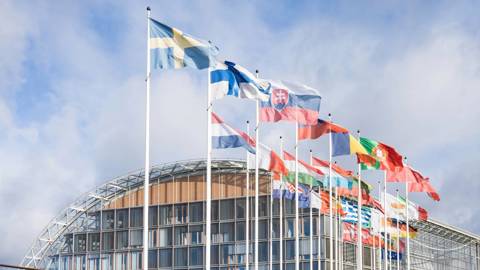
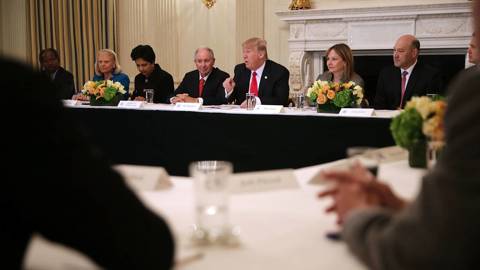

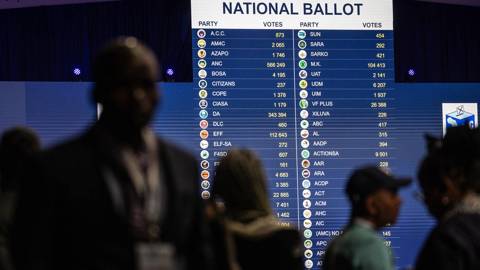
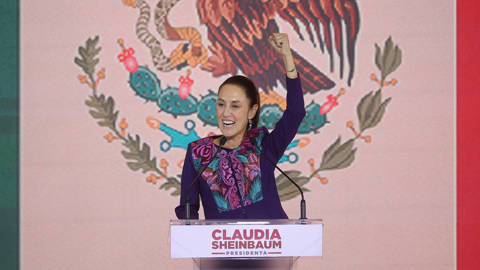
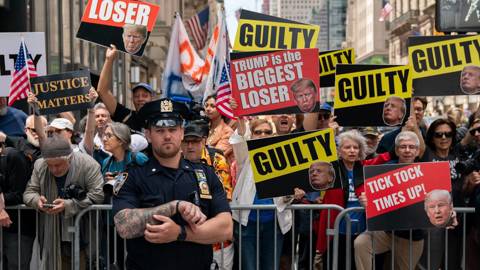
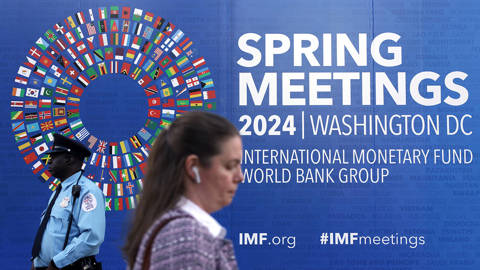

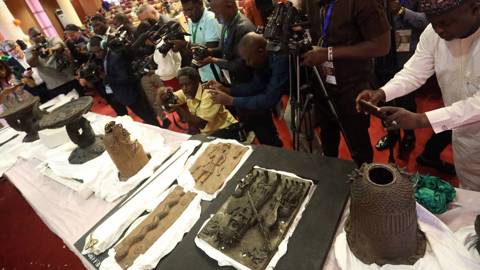
JOHANNESBURG – Last week, the United States Supreme Court ruled that detainees at Guantánamo Bay have the right to habeas corpus – the right to challenge the factual and legal basis of their detention in a court of law. I was elated by the decision, having spent four years working on ensuring the rule of law in US detention and interrogation policy, including monitoring military commission trials at Guantánamo Bay. But my happiness is tempered by where I sit, close to the border with Zimbabwe – a country where the writ of habeas corpus and the rule of law have become obsolete.
Habeas corpus, Latin for “you have the body,” is an old English common law principle incorporated into the US Constitution to ensure freedom from unlawful detention by the state. It was and continues to be a critical check against the imprisonment of individuals without oversight by independent courts. In Zimbabwe, this right – like so many other checks and balances – has been torn away by a repressive state.
Just hours before the US Supreme Court ruling, Tendai Biti, the Secretary-General of the opposition Movement for Democratic Change (MDC), was arrested upon his return to Zimbabwe. Despite immediate attempts by his lawyers to locate him, his whereabouts remained unknown for days. The police dismissed an initial court order demanding that Biti be produced before the court.
After Biti was finally produced before the court days later, the government announced that he will be charged with treason – which carries the death penalty – for unofficially announcing the results of the March 29, 2008, elections. Prior to his detention, Biti had responded to such allegations by stating that his only crime was to fight for democracy in Zimbabwe. It is unlikely that he will be able to challenge the basis of his detention in an independent court.
Since 1999, the MDC has offered a democratic alternative to President Robert Mugabe’s regime. In the most recent elections, Zimbabweans made their choice known, despite serious obstacles and widespread repression, with the MDC’s presidential candidate, Morgan Tsvangirai, gaining more votes than Mugabe. But, according to the vote counts released by the government after a suspicious month-long delay, the MDC’s margin of victory – 48% to 43% – fell short of the 50% required to avoid a run-off election.
Biti is not the only MDC member to be “disappeared” for a period of time by Mugabe’s government. Over the past two years, police and government-supported paramilitaries have routinely jailed, beaten, and even killed MDC officials and suspected MDC members. Last year, Biti was detained and beaten along with Tsvangirai and dozens of other MDC officials. The photos of Tsvangirai’s pummeled body led to an international outcry.
SPRING SALE: Save 40% on all new Digital or Digital Plus subscriptions
Subscribe now to gain greater access to Project Syndicate – including every commentary and our entire On Point suite of subscriber-exclusive content – starting at just $49.99.
Subscribe Now
State-sponsored violence against the MDC and its supporters has escalated as the June 27 run-off vote draws near. Just weeks ago, Biti described the discovery of the mutilated body of Tonderai Ndira, an MDC youth leader. Ndira had been taken by the police from his home. He was missing for seven days; when his body was found, it was recognizable only by a bracelet he always wore.
Here in our offices in Johannesburg, we have two Zimbabwean lawyers who fled their country after receiving death threats for their work defending human rights. At least five of their clients have been murdered in the past few weeks. Most recently, the Zimbabwean police suspended the work of numerous human rights organizations that were documenting the recent violence.
It is hard to imagine that a free and fair election can take place against the backdrop of such intense and systemic violence. Indeed, even South African president Thabo Mbeki, who, despite an outcry from many of his citizens, has supported Mugabe, felt compelled to label it a “cause for serious concern.”
In the majority opinion in Boumediene v. Bush , Justice Anthony Kennedy wrote that “Liberty and security can be reconciled; and in our system they are reconciled within the framework of the law.” But there is no rule of law left in Zimbabwe – no habeas corpus and no check on arbitrary state action. It is time for the international community to step in, call for an end to the detention and disappearance of MDC officials and perceived supporters, and push for a democratic transition in Zimbabwe. Only then can the principles underlying the Supreme Court’s decision come within reach of ordinary Zimbabweans.